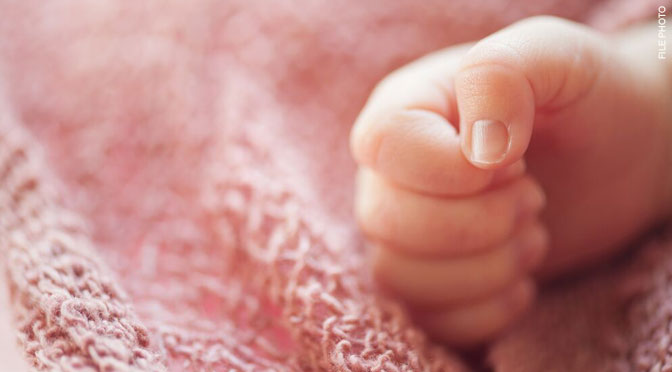Harriet Jackson was at her 22 week ultrasound for baby number five when she was told that her preborn daughter, Babette, had a severe form of spina bifida. Doctors offered her an immediate abortion, without the chance to speak to her husband, to get a second opinion, or to think over and research the diagnosis. Behavior like this – in which doctors push abortion on expectant parents who receive a prenatal diagnosis – has become a global epidemic.
Jackson refused to abort her daughter.
“To end my child’s life because she’s damaged would go against everything I’ve ever believed about what makes a person valuable,” she wrote in an essay for the New Zealand Journal.
Despite refusing abortion, Jackson was offered zero information on support organizations. Instead, she said doctors only discussed the worst case scenarios of the diagnosis and the costs of funerals. The social worker she eventually met with failed to give her information on support groups as well. Yet, there are three organizations in New Zealand alone who have been able to offer support to Jackson and her husband.
“When I called them, they were not surprised I didn’t know they existed,” she said. “They say the hospital has their brochures but obstetricians don’t give them out. I know other women, who had less than perfect babies like mine, including a Down’s syndrome baby who ‘would be a burden’ if she didn’t terminate. All had pressure from obstetricians to terminate, even when they made it clear they weren’t going to.”
Jackson believes that in today’s society in which preborn children are not considered valuable humans, aborting those who receive a prenatal diagnosis is not considered a choice, but an obligation. In some countries, politicians are even pushing for the forced abortion of children with disabilities.
“Consequently,” she said, “I am one of those irresponsible women the moral progressives condemn. My choice was not in line with their prevailing philosophy.
“The progressives seem to be either ignorant of, or repress, the psychological and spiritual impact of abortion. They are seduced by the philosophy of sentience. For example, philosopher March Zuijderland claims that women have an ‘ethical duty to abort when the foetus is seriously disabled’.”
Janet Whineray, the clinical director of obstetrics & gynecology of Christchurch’s Maternal Foetal Medicine Unit where Jackson learned of her daughter’s diagnosis, responded to Jackson’s concerns:
We are sorry to hear of Ms Jackson’s concerns, as it is our position that no woman is coerced into a termination.
A termination is viewed as an opt-in procedure and involves further discussion with two specialist consultants. Also, a termination beyond 20 weeks gestation involves legal processes around the permanent effect on maternal mental health.
Despite the legality surrounding the issue of aborting beyond 20 weeks, and the knowledge that abortion affects a mother’s mental health, Jackson’s doctors were willing to abort her child on the spot.
If it happens in New Zealand, you can bet it happens in the United States as well. Late-term abortions are often committed with a simple fudging of the paperwork.
And these abortions are risky for the mother. At 20 weeks, a D&E (dilation and extraction) abortion will typically be done. Dr. Anthony Levatino, a former abortionist, explains the brutal and inhumane process in the video below:
Doctors, whether afraid of a “wrongful birth” lawsuit or just of the opinion that certain lives don’t matter, push abortion on parents who receive a prenatal diagnosis. Further testing should be performed to confirm a diagnosis since many early tests prove to be false positives, and doctors are often not up-to-date on the latest information concerning the condition being diagnosed, as was the case in the abortion of Annie, who had cystic fibrosis. Because of this, parents receive outdated information and false outcomes for their children’s’ lives. Out of fear and misinformation, the parents abort. Annie’s mother still lives with the guilt.
Actress Lynn Ferguson was pressured so many times to abort her son, who turned out to be completely healthy, that she felt forced to switch hospitals. Doctors insisted that Suzanne Guy abort her daughter, despite her refusal. And mom Sarah Maroun said parents of preborn children with Down syndrome are on the “conveyor belt to abortion.” Iceland recently bragged that as a country, they have eradicated Down syndrome — by killing everyone with it while they are still in the womb.
In such a time when doctors can’t be trusted to offer the correct information, further testing to confirm a diagnosis, or point parents in the direction of helpful resources, it is up to parents to always second guess their doctor’s advice to abort. Parents must be advocates for their children by researching the diagnosis, reaching out to other families who have children with the same condition, getting a second opinion, and finding a doctor who will support their decision to carry their child to term.
Jackson’s daughter Babette lived for 14 hours after birth.
“At 42 weeks, my daughter arrived after an uncomplicated delivery. her birth, and the 14 hours we had with her alive, is deeply imprinted on my life, my husband’s and children’s,” she explained. “Friends have told me that Babette’s story has strengthened them. […] Against the overwhelming trend to abort disabled babies like mine, I will never regret letting my baby have a chance to live. She was a gift to teach us how to love better.”







